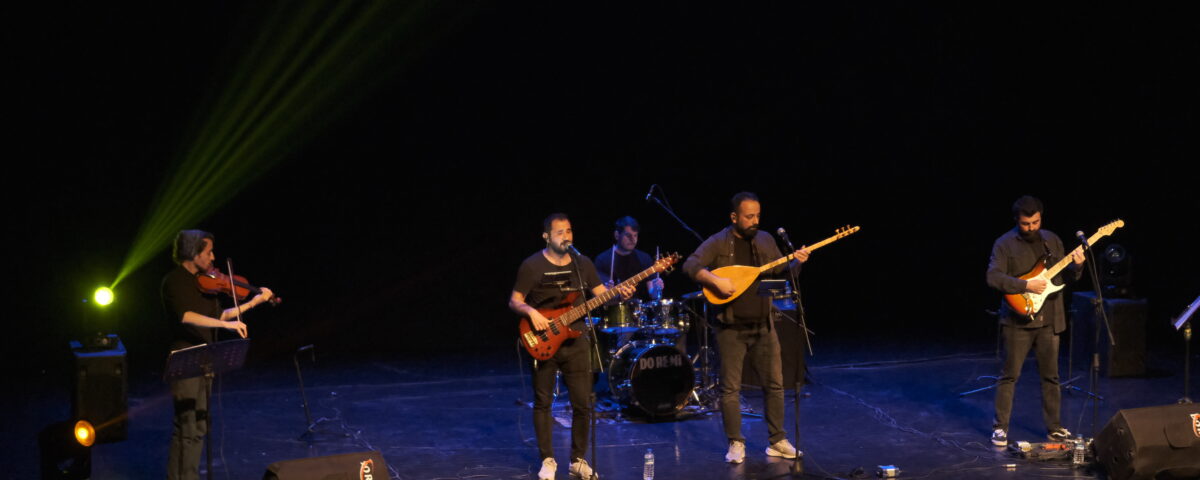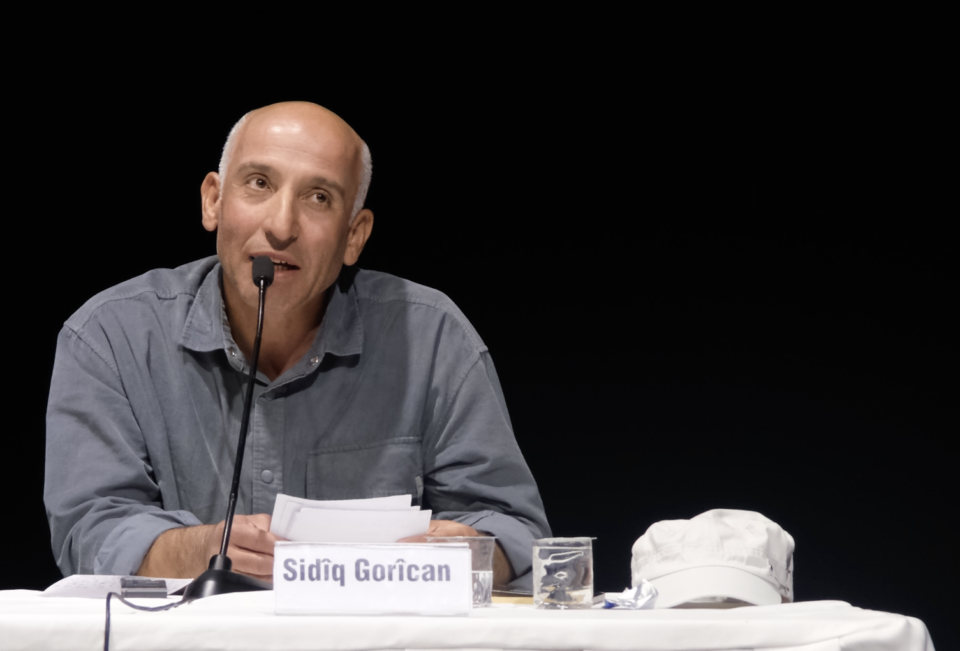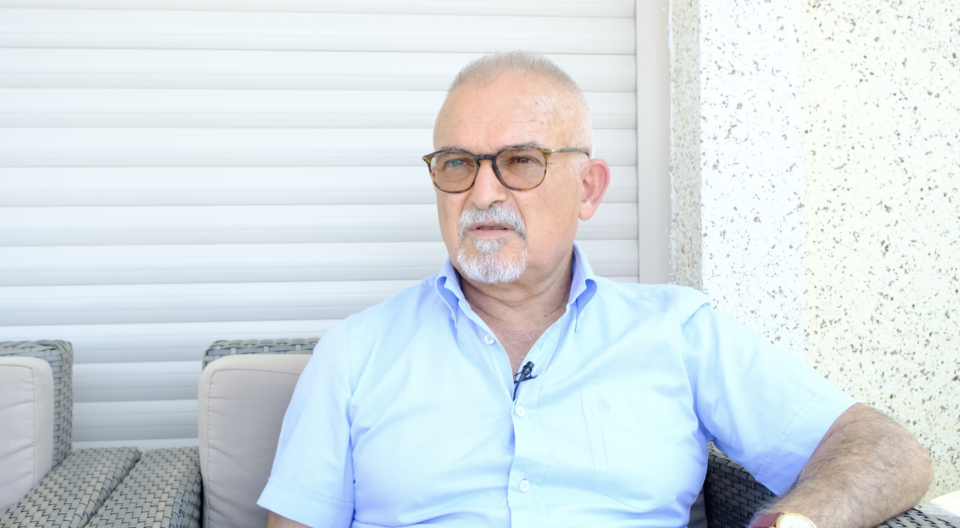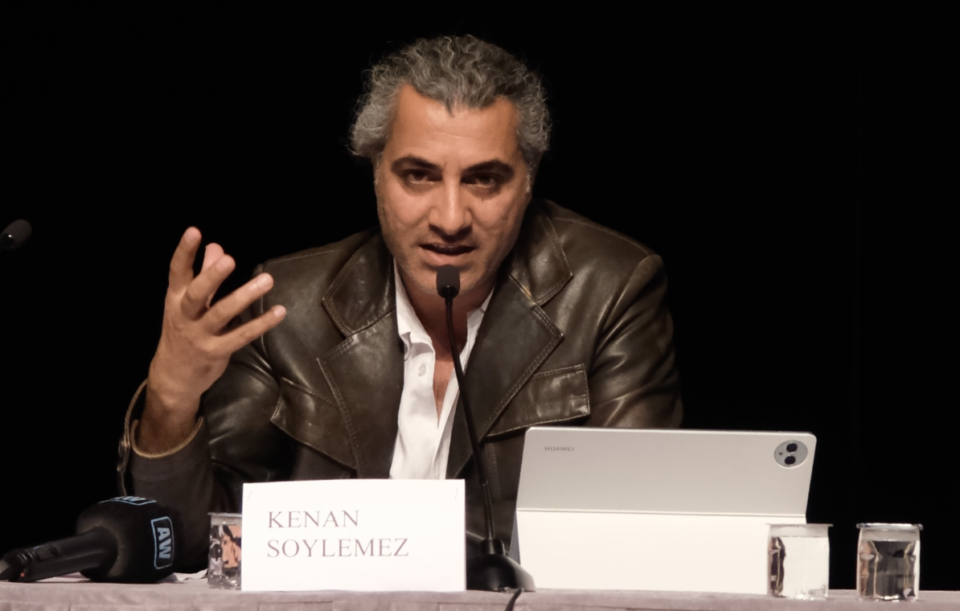
International Mother Language Day sketch in Diyarbakır
23.04.2025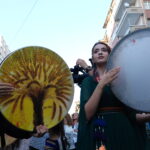
Def (erbane) in Kurdish culture: The memory of rhythm
25.06.2025Babetna, founded in Istanbul in 2016 by Deniz İnal, İlkan Pala, Ciwan Ayaz and Serdar Baba, takes its name from a word meaning “another kind” in Zazaki. The group, which blends anonymous folk melodies with its own compositions, has met its audience with the albums Yansıyan, Döngü and Revîn so far. The music they produce offers a multicultural and political universe of sound where languages such as Kurdish, Turkish and Armenian are intertwined.
“We wanted to create a different understanding of music”
One of the founders of the group, Ciwan Ayaz, tells Şoperêç about the birth of Babetna and its musical direction:
“Babetna represents something else with both its name and style. It means ‘different kind’ in Zazaki. This has both a pleasant tone and a meaning. We also wanted to have a different kind in Kurdish music. We set out with a more egalitarian, more collective spirit.”
An urban album: Revîn (Escape)
Babetna’s third album, Revîn, is a work consisting entirely of her own compositions and carrying an urban aesthetic. This album, which means “escape,” took shape during the period when people stayed at home due to the impact of the pandemic. However, the group describes this process as a rethinking, not a retreat:
“Revîn was not an escape from something; it was a state of looking from a distance, continuing with what was right. Like looking at the world from a place like sitting under a tree in the mountains.”
A multilingual synthesis from Mesopotamia to Anatolia
Babetna brings together the cultures of Mesopotamia and Anatolia in its music. The members of the group come from different geographies: Diyarbakır, Tokat, Bulgaria… But they all come together in the common heritage of Kurdish music. Ciwan Ayaz comments on this multilingualism as follows:
“We sang songs in Turkish, Kurdish, Armenian. This was our natural state. This mosaic had to show itself in our music as well.”
A story of struggle that comes from within music
The story of the group is also a story of struggle. Ciwan Ayaz, who grew up in Diyarbakır in the 1990s, describes the pressure they experienced at the Mesopotamia Cultural Center (MKM) during that period and their determination to make music as follows:
“The police had a Toros car in front of MKM. We would jump behind the wall and get in. My sister and I would sneak into our music room and work. Those times left a huge emotional burden on us.”
A natural production, a political stance
Babetna does not produce music out of a project or market concern. The songs emerge “naturally,” as the band puts it. Sometimes they write a song in a day, sometimes they just record by feeling. But they always have a stance:
“We don’t look at music as a project. Now, when we find something good, we immediately release a single. We don’t think like we used to. If it’s right, we do it.”
There are still those who say, “I heard you for the first time”
Babetna, who has been producing for over 10 years, complains about being caught up in social media algorithms. There are still many people who are hearing the band for the first time. For this reason, Ciwan Ayaz addresses the audience as follows:
“We don’t have advertising power. But you do. Tell those around you, ‘There’s a band called Babetna, their music is great.’ Let the support come from you. Algorithms sometimes make us invisible, but we will continue to produce.”

